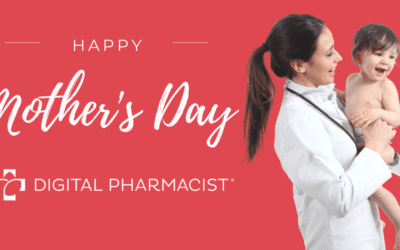Pharmacy-Based Point-of-Care Testing
Pharmacies are expanding their roles beyond prescription fulfillment to provide accessible diagnostic services. Many pharmacies leverage Clinical Laboratory Improvement Amendments (CLIA) waivers, allowing them to perform specific diagnostic tests within regulatory guidelines.
Navigating State Regulations for POCT
State regulations influence rapid diagnostic testing protocols. Some states permit pharmacists to prescribe based on evidence-based protocols, while others require physician approval. Collaborative Practice Agreements (CPAs) empower pharmacists in several states to prescribe using rapid diagnostic tests.
While diagnostic testing is pivotal, it’s essential to recognize that decisions regarding medication aren’t solely determined by tests. Patient symptoms remain a primary consideration. However, influenza testing informs antibiotic vs. antiviral treatment and care decisions. Interpreting outcomes requires assessing predictive values, test sensitivity, time since symptom onset, and patient cohort prevalence.
Types of Point of Care Testing
Within the realm of point-of-care testing, various rapid diagnostic tools have revolutionized healthcare. From COVID-19 antigen tests enabling early identification to precise Group A Streptococcus diagnosis, these advancements in pharmacy care are transforming patient management. While there are many types of poc tests that can be covered by pharmacies. Here are a few of the most common:
COVID-19 Testing
The COVID-19 pandemic thrust point-of-care testing into the spotlight. Pharmacies played a critical role in enabling widespread rapid COVID-19 point-of-care testing. Swift antigen tests deliver results within minutes, facilitating early identification and isolation. Molecular tests, such as RT-PCR, remain the gold standard for diagnostic accuracy.
Strep Testing
Point-of-care testing for streptococcal infections has revolutionized pharmacy care. Rapid diagnostic tests swiftly identify Group A Streptococcus, aiding in precise diagnosis and treatment. These tests enable timely interventions, averting complications and reducing patient discomfort. Additionally, strep testing remains relevant throughout the year so pharmacies can continuously test for this respiratory infection whereas others peak during certain times.
Flu Testing
Pharmacies frequently employ the “Rapid Influenza Diagnostic Test” (RIDT) for swift influenza detection. While it offers moderate sensitivity, recent FDA regulations mandate higher sensitivity thresholds. Rapid molecular assays provide heightened accuracy within 15-20 minutes, aiding early diagnosis. Hospital-based methodologies like RT-PCR and viral cultures are reserved for specialized cases due to longer processing times.
RSV Testing
Rapid tests for Respiratory Syncytial Virus (RSV) aid in diagnosing this common respiratory infection swiftly, enabling prompt interventions, particularly for vulnerable populations.
Benefits of Pharmacy-Based POCT
The benefits of POCT in independent pharmacies are vast. It strengthens pharmacist-patient relationships, fostering trust and accessibility. The accessibility of independent pharmacies allows broader care outreach and a more personalized patient experience tailored to the needs of each individual patient.
Enables Patient-Centric Care
Point-of-Care Testing (POCT) offers several advantages for patients. It allows for quicker and more convenient access to essential diagnostic tests within the community pharmacy setting. Patients can receive immediate results and consultations, reducing the anxiety associated with waiting for test results. Moreover, pharmacists can provide personalized guidance on managing their conditions based on these results, fostering a more patient-centric approach to healthcare.
Promotes Community Health
Pharmacy-based POCT plays a pivotal role in promoting community health in several ways. It enhances early detection and management of various health conditions, contributing to early intervention and improved health outcomes. By offering rapid testing and services such as flu shots and COVID-19 testing, pharmacies become key players in preventing the spread of infectious diseases within the community. This proactive approach contributes to a healthier and more resilient local population.
Increases Pharmacies’ Revenue Potential
By diversifying their services and offering diagnostic testing, pharmacies can attract more customers and generate additional revenue streams. Additionally, pharmacies can benefit from increased foot traffic and the potential for higher prescription and over-the-counter sales as patients seek advice and medications based on their test results.
Optimizing Point-of-Care Testing
Streamlining pharmacy point-of-care testing services with integrated digital solutions not only optimizes the patient journey but also empowers pharmacies to offer a higher quality of care, ultimately improving public health outcomes. Below are a few tools to keep in mind to help you optimize your point-of-care testing services:
Online Appointment Schedulers
Online appointment schedulers allow patients now easily schedule appointments 24/7, reducing wait times and ensuring a more convenient experience. This self-serve functionality can also greatly improve efficiency for pharmacy teams by reducing calls coming into the pharmacy to schedule point-of-care appointments, leaving more time to focus on patients in the pharmacy who are coming in for testing or other clinical services that necessitate your undivided attention.
Interactive Voice Response (IVR)
Pharmacy IVR systems facilitate automated communication, offering appointment reminders and helping patients get to the right department quickly for time-sensitive inquiries regarding point-of-care testing.
Two-way Messaging
Secure two-way messaging enables seamless communication between patients and healthcare providers, allowing for test result sharing, clarification of instructions, and answering any concerns promptly.
In conclusion, embracing point-of-care testing, particularly in pharmacies, revolutionizes healthcare access and effectiveness. By incorporating rapid diagnostic tests for flu, strep, COVID-19, and RSV, pharmacies fortify patient relationships and extend care beyond conventional hours. These endeavors translate to quicker diagnosis, reduced hospitalizations, and ultimately foster a healthier community benefiting from dedicated pharmacy teams.



